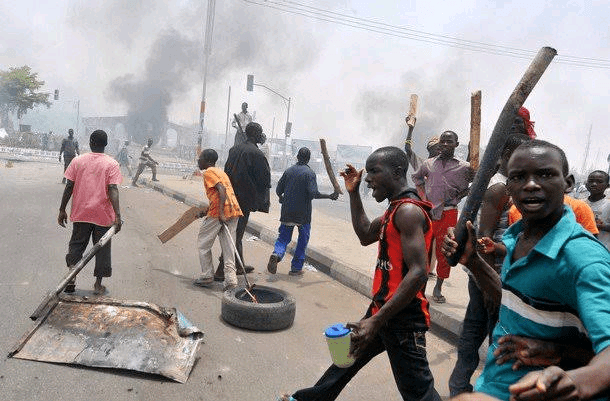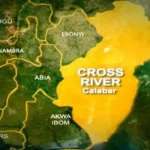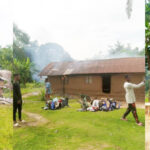Within the first half of July 2022, at least three separate communal clashes were reported in different parts of the country. The latest was in Niger State where three persons were reportedly killed in the communal clash between Biramafu village and Evungi community in Gbadafu Ward of Gbako LGA of the state. The clash erupted as a result of the speed breakers mounted by residents of Biramafu on the road that connects the two villages along the Bida-Mokwa highway. The allegedly too high bumps led to a reaction by neighbouring villages from where about 30 persons were mobilised and the speed bumps removed. This met violent resistance from the people of Biramafu who built the bumps. The people of Biramafu and Evungi villages chose to resolve their differences with the use of cutlasses in a deadly fight against one another.
The clash in Niger was shortly preceded by the communal clash between Ijegu and Yabu communities in Yala Local Government Area of Cross River State. Before the Cross River clash was another in which no fewer than 15 persons reportedly lost their lives in the communal crisis between the people of Ngbo and Ezza in Nkwuada community in Ohaukwu LGA of Ebonyi State. The cow of an Ezza resident which was reportedly missing was traced to the farm of an Ngbo indigene. The man from Ezza didn’t wait to hear from the Ngbo indigene before he invited others who went and killed the Ngbo indigene in the night. Although elders sent emissaries to pacify the Ngbo community with a promise to fish out the perpetrators, reprisals and counter-reprisals which claimed over a dozen lives continued for days.
- Buhari urged to sign NYSC Trust Fund Bill into law
- iKyari trial’s: Laboratory test confirmed substance was cocaine — Witness
A detailed report by the Daily Trust newspaper shows that in 2021, 189 persons were killed across 14 states. The affected states are Abia, Akwa Ibom, Anambra, Benue, Cross Rivers, Delta, Ebonyi, Enugu, Gombe, Kwara, Niger, Osun, Ondo, and Yobe. Anambra State where 11 persons were killed in three conflicts had the oldest history of communal clash, which had existed for decades between Aguleri and Umeleri communities of the state. Benue State where 30 persons were killed in one swoop of violence between Koshisha Ochoro and Bonta communities in July 2021 led other states with a total of 55 deaths in four separate clashes. Ebonyi, which followed Benue with 30 deaths, recorded 25 casualties in the clash in Effium community and five other deaths in the clash that occurred in Ekoli-Edda community of the state.
So far in 2022, 89 people have lost their lives in 25 different communal clashes across 10 states of the federation, including Akwa Ibom, Benue, Cross Rivers, Delta, Ebonyi, Enugu, Imo, Nasarawa, Niger, and Taraba. Ebonyi State tops the casualty list with 42 persons killed in five communal clashes as 18 deaths were recorded in the clash between Ojiogu and Okpori villages on June 2022 and 15 other casualties in the clash between Ngbo and Ezza villages on July 2, 2022; totaling 33 deaths within one week in the same state. In less than two years, Ebonyi State regrettably stands out with the loss of 72 lives in communal clashes that could have been avoided.
Communal clashes in Nigeria have been traced to factors that include boundary and land disputes, hate speech, high-level illiteracy, aggressive displacement, poverty, and lack of access to natural resources. Immediate consequences of communal conflicts include massive loss of lives, destruction of properties, displacement of residents, and the disruption of social and economic systems. Communal clashes also impede social cohesion and political stability. Above all, communal conflicts have a strong tendency to slow down the country’s development.
While it is important for government to recognise the value of and response to early warning signs in order to avert communal clashes, dialogue should be explored as an effective peace-building mechanism. People should not continue to die from avoidable deaths. Peace initiatives should be all-inclusive such that community heads, religious leaders and youths who constitute the largest perpetrators during violent conflicts would be involved in peace-building processes. Dialogues and consultations, not government fiat, are better mechanisms for resolving conflicts, particularly where the crises concern land disputes. Youths as local stakeholders in peace-making processes could, sometimes, do it much faster than state actors. Using necessary legal instruments, the National Boundary Commission should ensure that no boundary dispute is left unresolved.
Government needs to restore public confidence in its ability to protect its citizens by guaranteeing that offended individuals or groups get the justice they deserve. The failure of victims in communal clashes to get justice often accounts for their resort to executing their own idea of justice, rather than seek redress through appropriate legal channels. The country’s criminal justice system should, therefore, be made more efficient.
Citizens should see it as a civic duty to eschew violence, no matter how genuine the ill-feelings they hold against one another are. Violence is never a solution to any problem. A country already suffering more than enough casualties from cult attacks, ritual killings, armed robberies, insurgency, terrorism, and banditry cannot afford further fatalities from communal conflicts. Like other nations, Nigeria needs peace to develop.

 Join Daily Trust WhatsApp Community For Quick Access To News and Happenings Around You.
Join Daily Trust WhatsApp Community For Quick Access To News and Happenings Around You.

